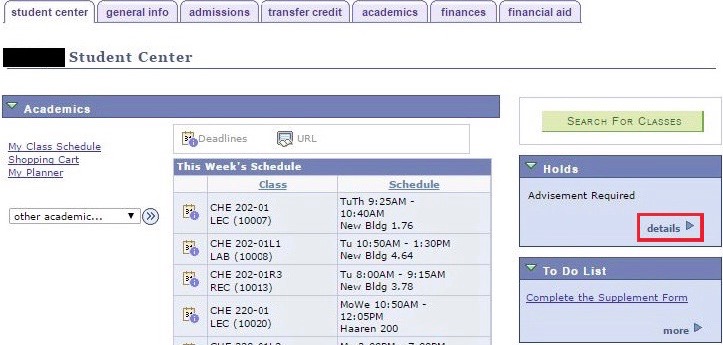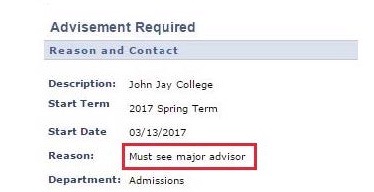Humanities & Justice Major Resources
The Humanities & Justice major offers students the opportunity to explore fundamental questions about justice from a humanistic, interdisciplinary perspective.
Rooted in history, literature and philosophy, Humanities & Justice prepares students for basic inquiry and advanced research into issues of justice that lie behind social policy and criminal justice as well as broader problems of social morality and equity. Its courses are designed to help students develop the skills of careful reading, critical thinking and clear writing that are necessary for the pursuit of any professional career.
This major provides an excellent preparation for law school and other professional programs, for graduate school in the humanities, and for careers in law, education, public policy and criminal justice. The Humanities & Justice curriculum involves a sequence of five interdisciplinary core courses in Humanities & Justice (designated with the HJS prefix) and seven courses from a list of humanities courses.
Here you will find:
- Key information about your major
- How and when to meet with your major advisor
- Planning tools that will help you track your progress in the major
- Ways to explore career opportunities related to the Humanities & Justice major
Take a few moments to look at the information below. It will help you plan effectively and avoid surprises during your studies at John Jay. Please visit the Humanities & Justice Program website for information, resources, and opportunities!
HJS Requirements
You are responsible for the major requirements that were in effect when you declared the major. To confirm the requirements you should be following, go to the Undergraduate Bulletin for that academic year. For example, if you declared the Humanities and Justice major in Fall 2015 or Spring 2016, you would click on the 2015-2016 Undergraduate Bulletin. If you declared the major and then left the College for more than one full semester, you’re responsible for the major requirements in effect when you return, if they have changed.
Below, find the Undergraduate Bulletin that was in effect when you declared the major.
- 2024-2025 Undergraduate Bulletin - HJS
- 2023-2024 Undergraduate Bulletin - HJS
- 2022-2023 Undergraduate Bulletin - HJS
- 2021-2022 Undergraduate Bulletin - HJS
- 2020-2021 Undergraduate Bulletin - HJS
- 2019-2020 Undergraduate Bulletin - HJS
- 2018-2019 Undergraduate Bulletin - HJS
- 2017-2018 Undergraduate Bulletin - HJS
- 2016-2017 Undergraduate Bulletin - HJS
- 2015-2016 Undergraduate Bulletin - HJS
- 2014-2015 Undergraduate Bulletin - HJS
- 2013-2014 Undergraduate Bulletin - HJS (PDF)
- 2012-2013 Undergraduate Bulletin - HJS (PDF)
Major Advising
Fall 2025 Major Coordinator:
Professor Allison Kavey, Department of History
akavey@jjay.cuny.edu
Humanities and Justice major advising is being done mostly remotely in Fall 2025. Professor Kavey encourages students in the major to contact her with questions.
Students must review their course of study with the major advisor in order to insure its breadth and coherence. It is important to receive major advising before each semester’s registration. To schedule a major advising appointment, email Professor Kavey (akavey@jjay.cuny.edu) and include your EMPL ID number. Please review your major requirements on Degree Works before your advising appointment.
Humanities and Justice students who would like major advising during Summer session (June 2 - August 25) 2025 can email Professor Stephen Russell (srussell@jjay.cuny.edu).
Sophomores with 45-59 credits may have a major hold placed on their registration until they receive advisement from the HJS faculty. We do this to help you stay on track and graduate on time. Contact the HJS major coordinator (see Major Advising section above for contact info), who will arrange an appointment for you with one of the HJS major advisors. Note: You can receive advisement from other HJS professors, but they must send the major coordinator an email to confirm that you received their advice for your registration.
To prepare for your appointment, please print the HJS major checklist and check off your completed and in-progress courses. During the meeting, you will review your checklist with the HJS advisor and decide courses for the next academic term (and the following semesters if possible). The advisor will remove the hold immediately after you meet.
How do you know if you have a major hold? Go to CUNYfirst and complete the following steps:
- Check the Holds box of your CUNYfirst Student Center. If "Advisement Required" appears, click on “details.”

- Click on “Advisement Required.”

- See which type of advisement you need. If you must see a major advisor, then make a major advising appointment following the steps preferred by this department.

Plan Ahead: Graduate on Time
The HJS major has several courses that build on each other in a sequence, so it is important to be aware of this and plan accordingly. You should take the core courses of the major in the following order:

- If you are a transfer student or have switched to HJS from another major, make it a priority to take HJS 250 in spring of your sophomore year and HJS 310 in fall of your junior year.
- Remember that HJS 315 is offered in spring only, and you should take it in spring of your junior year. After that, as a senior, you should enroll in HJS 410 (offered fall only), before HJS 415 (offered spring only). This will help you graduate in May of that year.
- HJS requires a thesis, which allows you to research and write about a topic of strong interest to you in consultation with the HJS advisor. Plan to devote a lot of your academic attention to HJS 410 and HJS 415 during your senior year.
- You will need to take 21 credits from the HJS elective courses and at least 12 of these credits must be at or above the 300 level. Not all the courses on the list are offered every semester. See the HJS Major Checklist for course options.
- Remember that you will need at least a 2.0 GPA in the major and at least a 2.0 overall GPA to graduate.
- DegreeWorks degree audit - Use this online planning tool to track your overall progress toward graduation. You will see which of your general education and major requirements are completed, in progress, or still needed. Refer to the DegreeWorks FAQs to better understand how to use this helpful tool. Note: be sure to confirm the accuracy of your degree audit with a general advisor and major advisor.
- HJS Major Checklist - Fill out this printable worksheet to keep track of which major requirements you have completed and which ones you still need. If you enrolled for the first time at the College or changed to this major in fall 2017 or after, you must complete the major in the form presented on this checklist. If you enrolled prior to fall 2017, you may choose the form shown here or the earlier version of the major. Contact the HJS major coordinator to request the earlier version of the HJS checklist.
- Sample Four Year Plan - See an example of how you could complete all your degree requirements (major, general education, electives) and graduate in four years! Remember that this sample plan shows just one possible way to combine your requirements. Transfer students in particular should work with advisors to determine a plan that works best for them.
A General Academic Advisor will confirm what general academic requirements you still need, make suggestions about smart course planning that will help you graduate without delays, discuss your interest in adding a minor or second major, inform you about opportunities such as study abroad, discuss general questions and concerns, and make helpful referrals. Visit the Academic Advisement Center's webpage for more information.
HJS and Careers
Graduates with Humanities and Justice degrees are positioned to compete for jobs as paralegals, in social policy research, in public service, and the like. We also work to prepare our students for jobs in a variety of careers not as directly related to the “justice” curriculum (e.g. in advertising, finance, educational policy, non-profit work, the media). The program joins a growing nationwide trend toward interdisciplinary study, increasingly seen as crucial to preparing students for twenty-first century careers. In this regard, aside from what they “learn” in Humanities and Justice, our students graduate with the intellectual dexterity and writing and research skills that will be of advantage to them in a variety of fields and professions. Employers in these organizations typically want to hire students with degrees in the liberal arts because of the strong writing, reading, and verbal communications skills they have attained. Listen to Professor Allison Kavey talk about the exciting connections between this major and the professional world, whatever a student's career goals may be.
Career Guidance
John Jay’s Career Learning Lab is another great resource for questions related to job searches, internships, and career preparation. CLL staff are available to meet individually with students and alumni in L72.00 New Building. You can schedule an appointment or attend their walk-ins.
A number of Humanities and Justice graduates apply to post-graduate degree programs in law and other professional schools or in the humanities. The courses in Humanities and Justice require students to begin developing intellectual independence early in their undergraduate careers, and to test and refine their ability to read, write, speak, and analyze through a variety of increasingly challenging courses, culminating in the senior thesis capstone sequence. It is important to emphasize that the major not only prepares students to excel once admitted to graduate programs, but that the courses within the major should contribute significantly to students’ preparedness for graduate and professional school entrance examinations (i.e. the GRE and LSAT).
Graduate School Guidance
Students interested in going to law school can receive tailored advising and learn about development opportunities from the Pre-Law Institute.This center also provides advising for non-law related fellowships and graduate school applications. John Jay students and alumni who would like to make an appointment with a pre-law advisor may do so either by stopping by the Pre-Law Institute and Center for Post-Graduate Opportunities in 8.66 NB, signing up on our advisement center or emailing pli@jjay.cuny.edu.